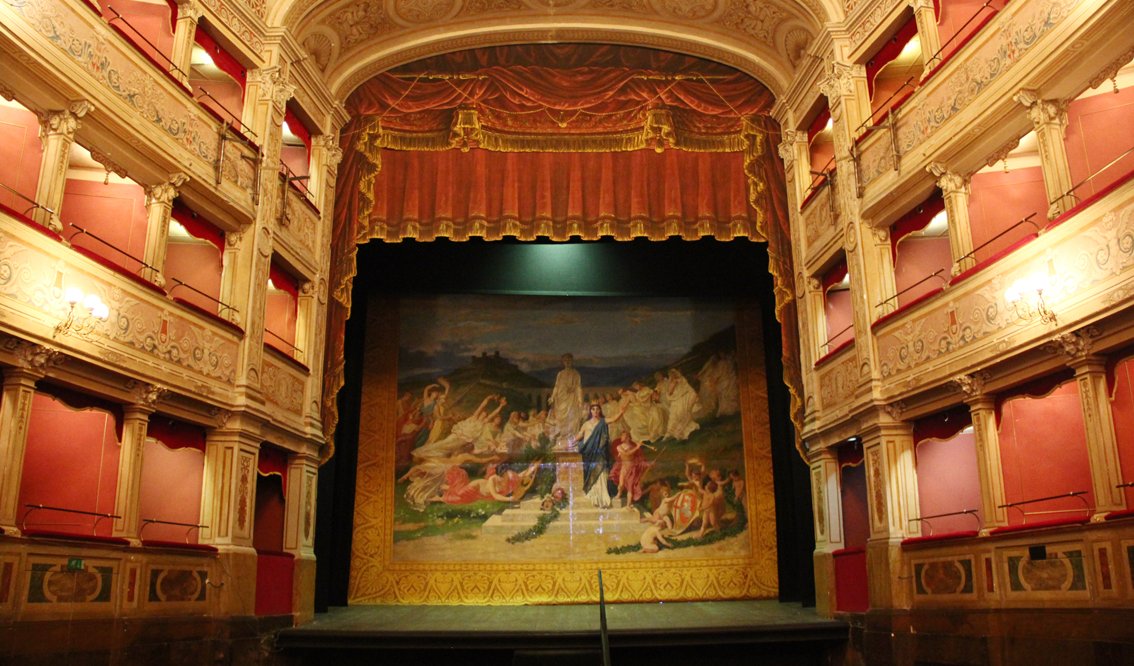
Program
Antonio Vivaldi (→ bio):
La Senna Festeggiante (Festival on the Seine), RV 693
Featuring
Program introduced by
Soloist
- Emőke Baráth (soprano)
- Anna Reinhold (alto)
- Peter Harvey (baritone)
With
Other information
The event is about 1.5 hours long.
About the event
The ensemble playing historical instruments, formed from the members of the Budapest Festival Orchestra, has been a major player in the early music movement for years. In addition to their performances with baroque gestures and opera productions, they also pay great attention to cherish and present the works that have fallen out of fashionable repertoires. In this concert in Spoleto, through the medium of Vivaldi's evocative, fairytale-like work, the orchestra shows how international diplomacy worked in the 18th century. La Senna Festeggiante (Festival on the Seine) is more than a cantata but less than an opera. Written by Vivaldi, a high-ranking figure in Italian music, for a gathering hosted by the French ambassador in Venice, it features musical nymphs, swans and a quite undisguised text in which he compliments King Louis XV of France. Obligatory flattery with great music.
La Senna Festeggiante (Festival on the Seine) is by far the best of Antonio Vivaldi’s three surviving serenatas from what we believe were eight pieces in total. Composed for an instrumental ensemble with three vocal soloists, the two-part piece runs just shy of ninety minutes. It was composed in 1726 in the hope of creating an alliance of joining nations. Venice, whose army was rather modest in size, was in need of the support of the great powers, which is how certain French elements seeped into the clearly identifiable Italian musical style, and also why Vivaldi pays homage in the piece to the 16-year-old Louis XV with almost embarrassing enthusiasm. The infinitely simple plot and text, featuring only positive allegorical characters - the good qualities of King Louis - was the work of Domenico Lalli, the librettist for several of Vivaldi's operas. According to the story, Virtue and Golden Age meet on the shores of the Seine to ponder the horrors of the world. The river speaks to them and takes them in, and the three characters then sing praises to Louis’ greatness.
Vivaldi’s music, however, elevates this awkward lobbying to great heights. The arias, alternately describing the flow of the river or a storm, are expressive. The vocal melodies are instrumentally challenging, the duets are lyrical and the instrumental solo arrangements are clever. In addition to the French elements (such as the overture to the second part), Vivaldi also relied heavily on his earlier works, and the results are in many places better than the originals.
The work, rarely seen on the concert hall stage, will also feature the outstanding young Hungarian singer Emőke Baráth, an internationally acknowledged expert on Baroque music. Her performances and recordings with Philippe Jaroussky and her long-standing collaboration with Warner Classics-Erato are just some of the facts that guarantee the quality of her music. The Hungarian premiere of Vivaldi’s work is also linked to her name and that of the Budapest Festival Orchestra.